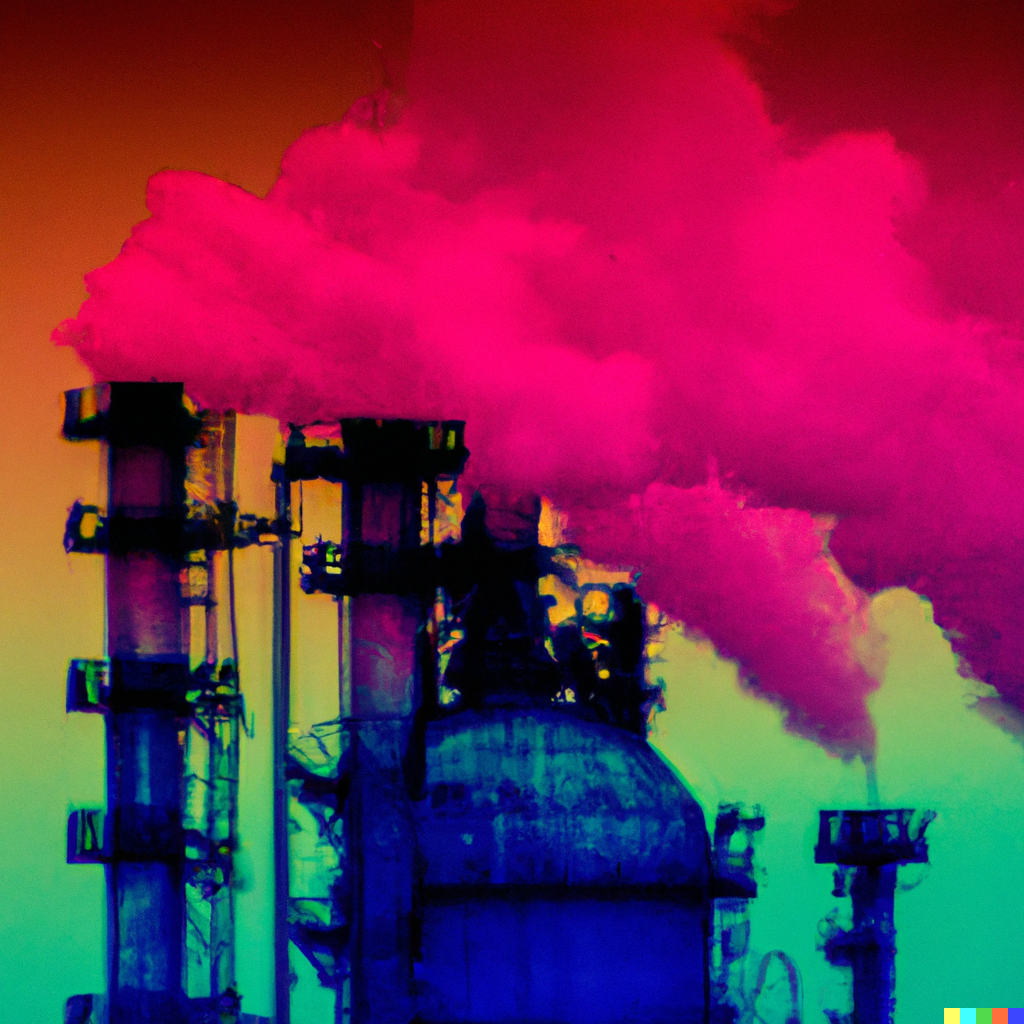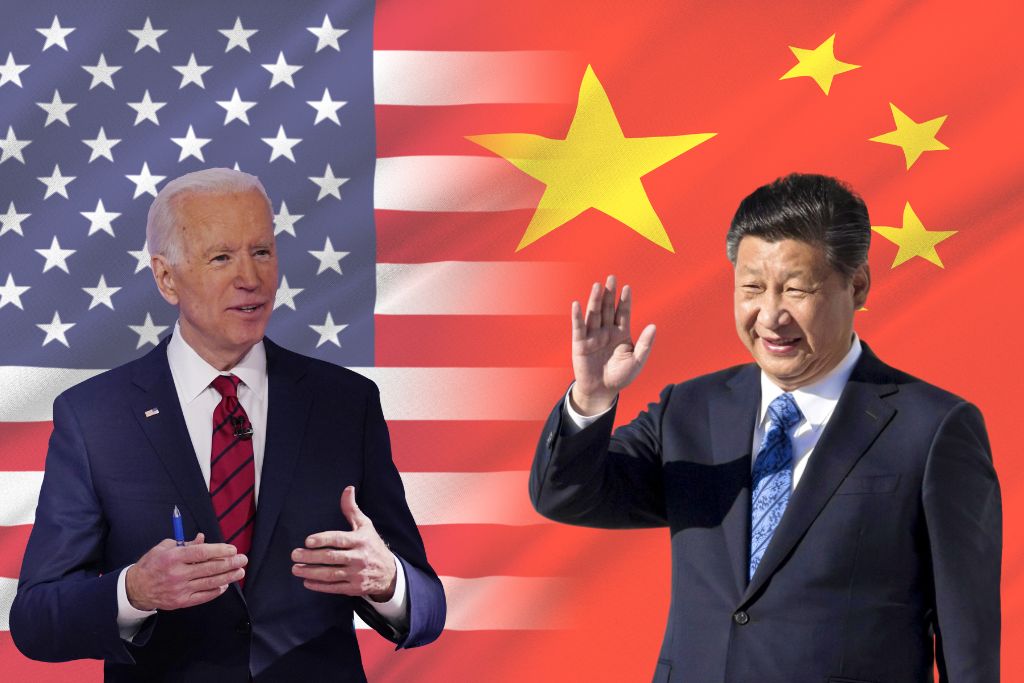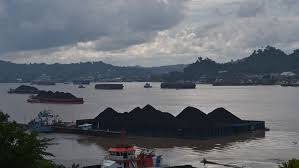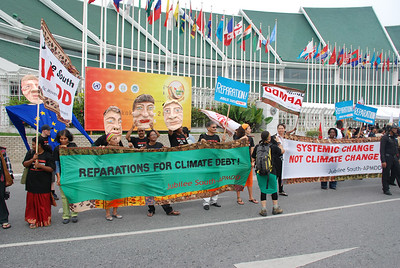Region: International
The COP28 Halftime Report
Has the annual UN climate conference grown too big to function? Takeaways from Week 1 of COP28 in Dubai.
We’ve reached the midpoint of the annual, two-week international climate conference known as COP (for “conference of parties”), so it’s a good time to reflect on what’s gone down in Dubai. I’m attending along with a delegation of UCLA Law students and colleagues here to follow a range of issues, from methane regulation to China’s …
Continue reading “The COP28 Halftime Report”
CONTINUE READINGA $1 Billion Investment in the ‘New Forest Economy’
A global group of governors just issued a call-to-action for more flexible funding for forest protection. Here’s why that’s important.
On December 5, as the 28th Conference of the Parties (COP28) to the United Nations Framework Convention on Climate Change continues full swing in Dubai, Governors, Indigenous Peoples, and other partners of the Governors’ Climate and Forests Task Force (GCF Task Force), launched an urgent call-to-action to finance what they are calling the “New Forest …
Continue reading “A $1 Billion Investment in the ‘New Forest Economy’”
CONTINUE READINGIs “carbon management” just another COP-out?
Fudging the differences between carbon capture and carbon removal risks weakening climate action
Emissions cuts alone will (almost certainly) not keep the global average temperature rise below 1.5°C. But some optimism remains. Alongside a rapid phase-out of fossil fuels, substantial deployment of carbon dioxide removal (CDR) techniques might avert – or at least limit – overshoot of 1.5°C. At COP 28 this week the US and several partners …
Continue reading “Is “carbon management” just another COP-out?”
CONTINUE READINGAddressing Corruption In Electric Vehicle Battery Supply Chains
New CLEE/NRGI issue brief offers solutions
In the race to scale up a global supply chain for electric vehicle batteries, mining justice advocates have sought to ensure that the ongoing clean technology minerals boom does not exacerbate longstanding negative impacts from the global mining industry. Chief among these are corruption risks. To provide guidance to electric vehicle purchasers (particularly fleets), advocates, …
Continue reading “Addressing Corruption In Electric Vehicle Battery Supply Chains”
CONTINUE READINGThe New Frontier of Methane Regulation
Nations, companies, and NGOs are targeting methane like never before using satellite data. A new UCLA paper outlines what that could mean for regulation.
Methane is ready for its close-up. The first week of COP28, the UN climate talks taking place in Dubai, saw a handful of big announcements about how world leaders plan to tackle human-made climate change by targeting methane, a powerful short-term climate pollutant. The UCLA Emmett Institute is also drawing attention to the issue of …
Continue reading “The New Frontier of Methane Regulation ”
CONTINUE READINGClimate Change and the Hard-Headed Realist
Henry Kissinger showed that you don’t have to have a shred of idealism to favor climate action.
It’s not surprising that Bernie Sanders said, rather emphatically, that he was not a friend of Kissinger’s. Yet there was one issue where they did agree: climate change. If there was one thing that Henry Kissinger stood for, it was the hard-headed “realist” view of foreign policy — a view that prioritizes national interest at …
Continue reading “Climate Change and the Hard-Headed Realist”
CONTINUE READINGWhy Do Small Changes in Global Temperature Matter So Much?
One problem is that we’ve pursued optimization rather than robustness.
Scientists are warning us that even comparatively small changes in average temperature may have disastrous results. If you turn up your thermostat 2 ºC (about 3.6 ºF), the difference may be noticeable but it’s no big deal. So why is that a scary increase in global temperatures? Some reasons are physical, particularly the difference between …
Continue reading “Why Do Small Changes in Global Temperature Matter So Much?”
CONTINUE READINGU.S.-China Climate Deal Means Good Vibes for COP28
Here are key takeaways from the Sunnylands Statement on Enhancing Cooperation to Address the Climate Crisis ahead of the UN climate talks in Dubai.
The chances for a productive COP28—the U.N. climate talks that get underway Nov. 30 in Dubai—got a big boost from the recent climate agreement between the U.S. and China, the world’s two biggest polluters. Announced just before President Joe Biden and China leader Xi Jinping met at the APEC Summit in San Francisco, the …
Continue reading “U.S.-China Climate Deal Means Good Vibes for COP28”
CONTINUE READINGClimate Policy in the World’s Fourth Largest Country
In case you’re wondering, that would be Indonesia in terms of population.
Indonesia has the world’s fourth largest population, right after India, China, and the U.S. It has about the same GDP as Spain. Indonesia ranks in the top dozen carbon emitters. It gets relatively attention in the United States. Yet Indonesia’s role in cutting energy emissions is crucial. As an archipelago, Indonesia is at the prey …
Continue reading “Climate Policy in the World’s Fourth Largest Country”
CONTINUE READINGWhat to watch for, and ignore, at the upcoming climate talks in Dubai
UCLA Law’s Mary Nichols, Alex Wang, and Ted Parson preview COP28 in a webinar this Wednesday.
Each year since 1995, the countries of the world have gathered to negotiate what to do about climate change. They do so under the auspices of the Framework Convention on Climate Change, the universally adopted climate change treaty that sets a goal of avoiding dangerous interference with the climate system. Those talks have had ups and …
Continue reading “What to watch for, and ignore, at the upcoming climate talks in Dubai”
CONTINUE READING













